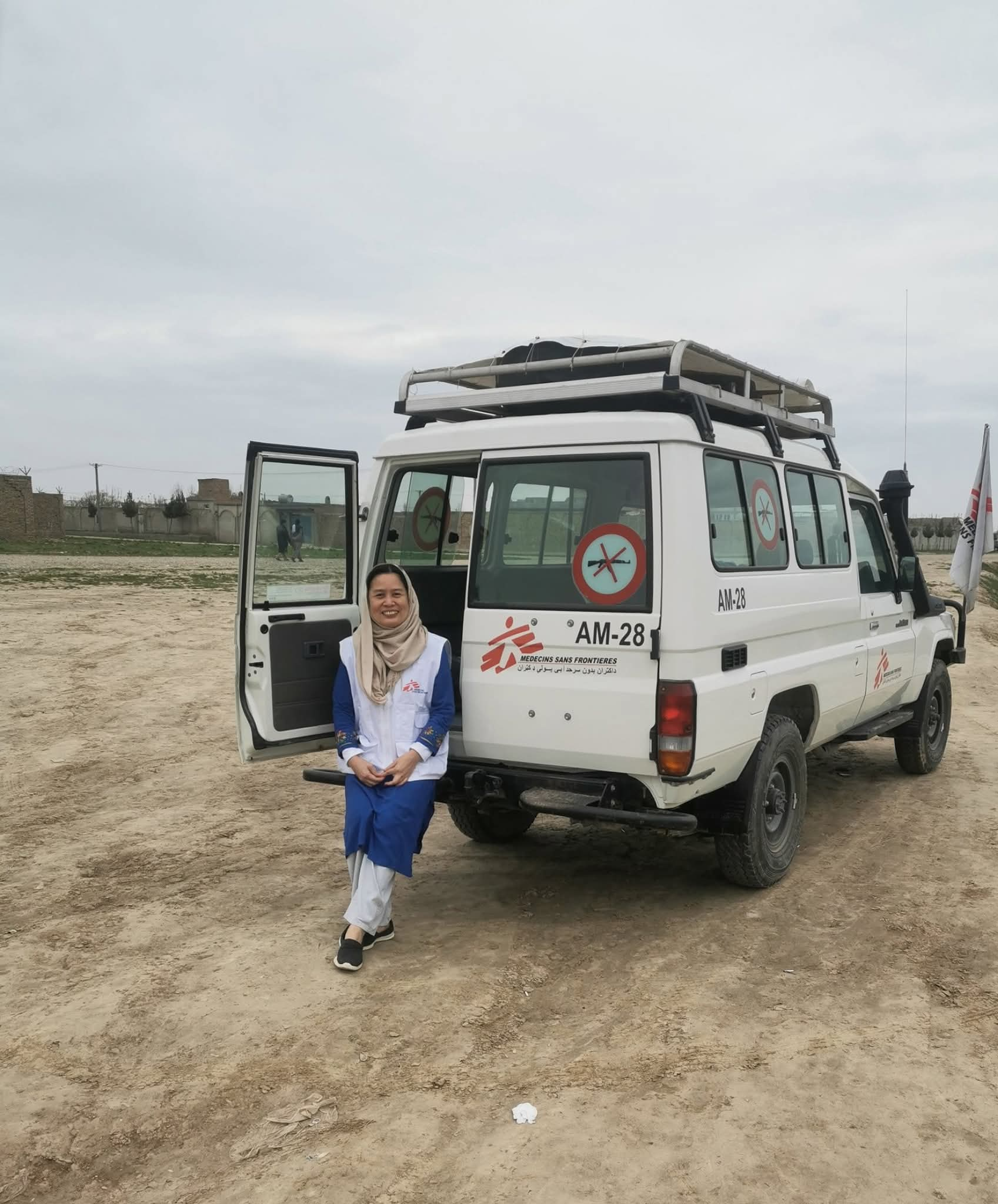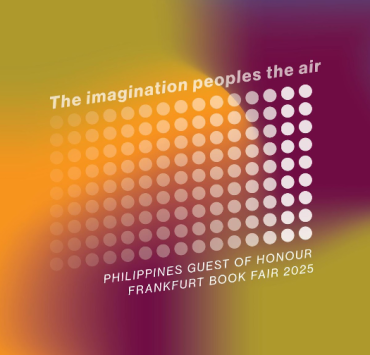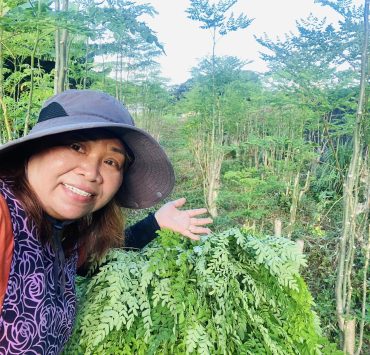As an international humanitarian worker in war-torn areas, Dr. Evangeline Cua confronts her fears and uncertainties head-on, and always remains steadfast in her dedication to serving others.
Dr. Evangeline had already heard of Médecins Sans Frontières (MSF) while still in med school and had been motivated by its commitment to provide medical aid in war torn places. But it would take several years before she could finally pursue her dream of working in areas that few doctors dare to tread.

It was in the wake of typhoon Yolanda’s devastation in Guian, Eastern Samar that brought her to work with MSF for the first time. Little did she anticipate that this experience would open the door to an unexpected and life-altering opportunity – to be a humanitarian worker. Her first assignment was in Kunduz, Afghanistan in August 2015.
“I was not after a big salary. I told my parents that if I became a doctor, they shouldn’t expect me to become rich. I just want to help,” shares Dr. Evangeline Cua in our online interview in her house in Northern Samar.
Afghanistan, a country with a long history of conflict, was not the conventional choice for many. But for her, it was the decision of a lifetime. “I said yes right away because I believed in the principles that define MSF – neutrality and impartiality transcending political boundaries.”

Born in Samar, Dr. Evangeline took up medicine at Western Visayas University, Iloilo. Inspired by her midwife mother, she aspired to be a doctor at the age of 12. Family vacations turned into opportunities for her to join vaccination programs and medical out-reach activities. “In grade school, I read a famous woman surgeon’s biography and it made me dream of becoming one. I want to be a surgeon till I get old.”
Wrestling fear and empathy
Life in Afghanistan was not without its challenges. In the midst of the Taliban’s presence, she wrestled fear and empathy. “The Taliban’s had controlled Kunduz that time but we were assured they wouldn’t hurt us. They entered the hospital but had to follow the hospital’s no guns policy. They would give me an intimidating look but I told myself, “I am helping their relatives and friends, they won’t hurt me.”
Then the carnage happened. On October 3, 2015, a week before she was about to finish her first medical mission, their hospital became the target of a massive US air strike. “It was around 1 a.m. I was operating on a patient. I stood transfixed, choked, not knowing where to turn or what to do while all around us, bombing continued in regular intervals, shaking the ground, sending debris sweeping and flying. I silently prayed that we could get out of there alive,” describes Dr. Evangeline. A top US officer would later say that the attack was “a mistake”. The “mistake” would take the lives of 42 people, one of them was her patient.

Dr. Evangeline went back home a week later to recover and heal from the traumatic experience. It was also her chance to ruminate on what she had to do next. “Sometimes I would ask myself, what am I doing? But then, how about these people? Who will help them?”
And so, despite the danger the missions would entail, she took on her second assignment that would lead to more humanitarian missions in the most treacherous places on the planet.
In 2016, amidst the chaos of ISIS attacks in Mosul, Iraq, Dr. Evangeline was scouting potential project sites to be used by those affected by the war. She was in Raqqa, Syria when the civil war was just beginning to unfold.
I will never forget the look of the traumatized five-year-old Syrian girl, the sole survivor of her family. What will happen to these kids? They will grow up in refugee camps. What will their future be?
– Dra. Evangeline Cua
On the Jordan-Syria border, she treated long-term patients, many of whom were left paralyzed or severely injured. In Yemen, their makeshift hospital tent became a sanctuary for those wounded from the bombings.
Power of friendships
In most of her missions, she was the sole Filipino in the team, but the warmth of the locals mirrored the familiar Filipino hospitality. The language barrier dissolved through the presence of translators, enabling her to have meaningful interactions with patients. “I really make an effort to know my staff and interact with the locals. Most expats’ mindset is ´Why build friendships if I will only be here for 3 months’. For me, friendship is a really important human connection for a better working relationship.”

Working with MSF for almost a decade now, Dr. Evangeline has seen a lot of suffering and misery. From South Sudan to Yemen, from Iraq to Syria, from Central African Republic to Afghanistan, each mission gives her a mix of emotions, ranging from relief upon completion to a sense of guilt for leaving behind communities still struggling to survive. As she sits on the plane on her way home after each mission, she finds herself reflecting on the diverse experience she has encountered, grateful that she has survived yet another mission.
“In the Central African Republic, I witnessed firsthand the lack of basic necessities such as food and water, and the agony of locals who endure daily struggles for survival. I am always reminded of the privilege I often take for granted and the moral imperative to alleviate the suffering of others.”
She has also seen the reality of conflict that extends beyond the bombings which leaves deep scars on the fabric of society, particularly on the most vulnerable – children. “In Yemen, children carry guns at a very young age and it breaks my heart.”

In 2022, Dr. Evangeline was in Afghanistan for the fourth time when the Taliban took control of the country. Despite the looming threat, she stayed on for another year. Her sense of duty to her patients was the driving force of this decision.
Commitment and purpose
As a humanitarian worker, she fervently hopes for a world where the voices of the powerless are heard, and conflicts are resolved through dialogue and diplomacy rather than violence and bloodshed. Despite the horrors of war and the loss of loved ones, she has encountered remarkable displays of courage and solidarity among local populations. From makeshift schools in refugee camps to impromptu medical clinics in bombed-out buildings, the ingenuity and determination of individuals to rebuild their lives amidst chaos are nothing short of inspiring.
To those considering embarking on a similar path, she strongly recommends having an unwavering commitment and clarity of purpose.
I have seen several expats sign up just because they want to experience war. When they arrive, their motivation is not enough, especially in critical situations.
-Dra. Evangeline Cua
For Dr. Evangeline, her job requires confronting fears and uncertainties head-on, while remaining steadfast in her dedication to serving others.
She just came back from South Sudan last June after a two-month mission to prepare for a possible civil war; which fortunately didn’t reach the capital. She currently taking a break from humanitarian field work, keeping herself busy working as department head and consultant surgeon at the Northern Samar Provincial Hospital and in her own Cua Surgical clinic.

Looking back, Dr. Evangeline´s decision to work in war-torn places proved to be more than a career move – it was a journey of personal and professional growth. The principles of MSF become more than words on paper; they become her guiding force that goes beyond borders and overcomes fear. “Fear is in your mind, once you confront your fear, you will be just fine.”
What's Your Reaction?
Nats Sisma Villaluna has been serving the Filipino community in Spain for more than 15 years. His volunteer works include teaching Spanish to Filipinos, and as artistic director of the Coro Kudyapi, a group of musically inclined young Filipinos in Barcelona. His passion to serve the Filipino community now extends to other countries in his role as Publisher and Editor-in-Chief of the new The Filipino Expat Magazine.




